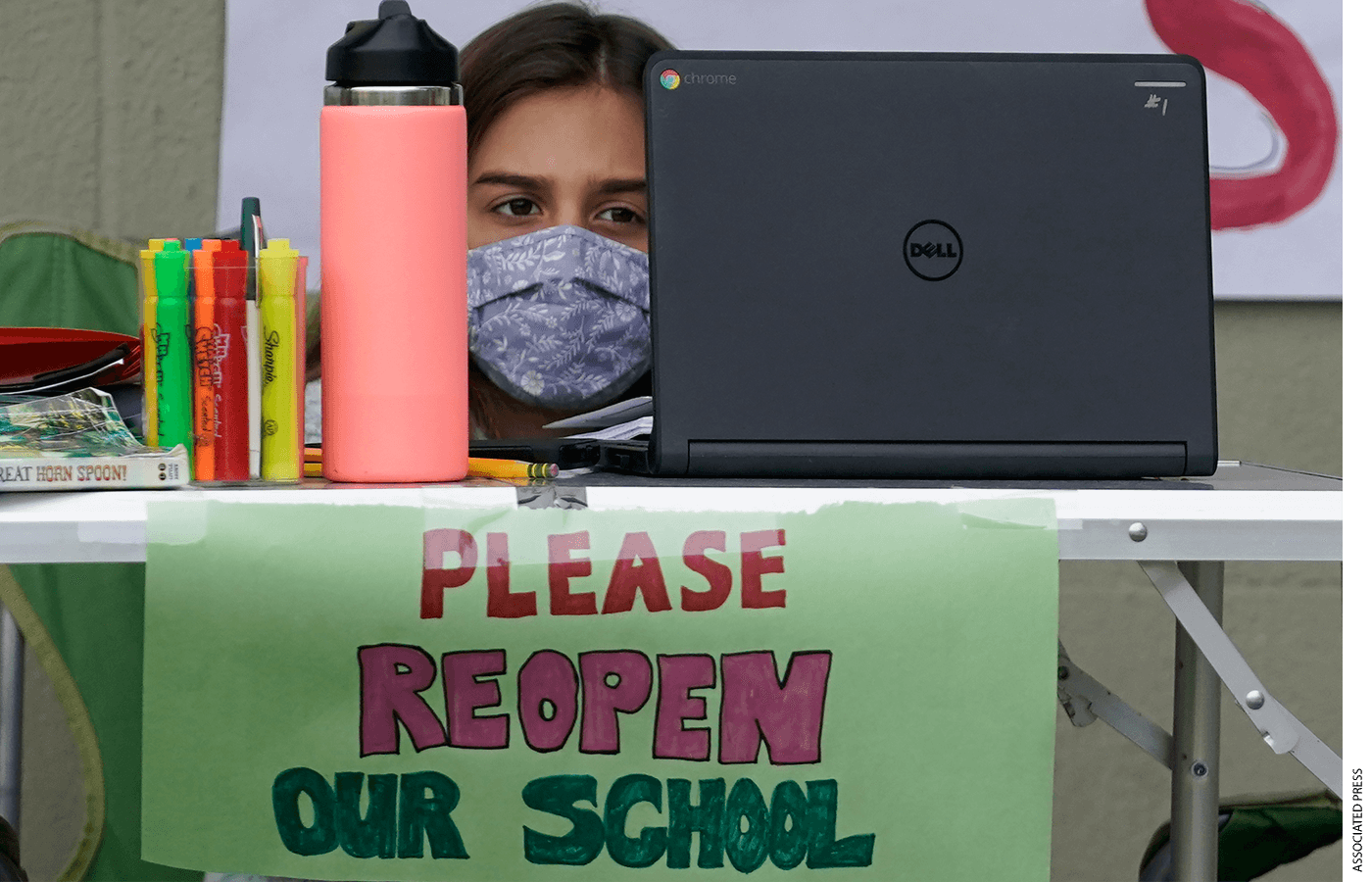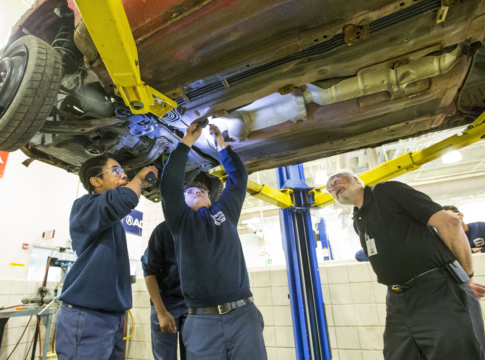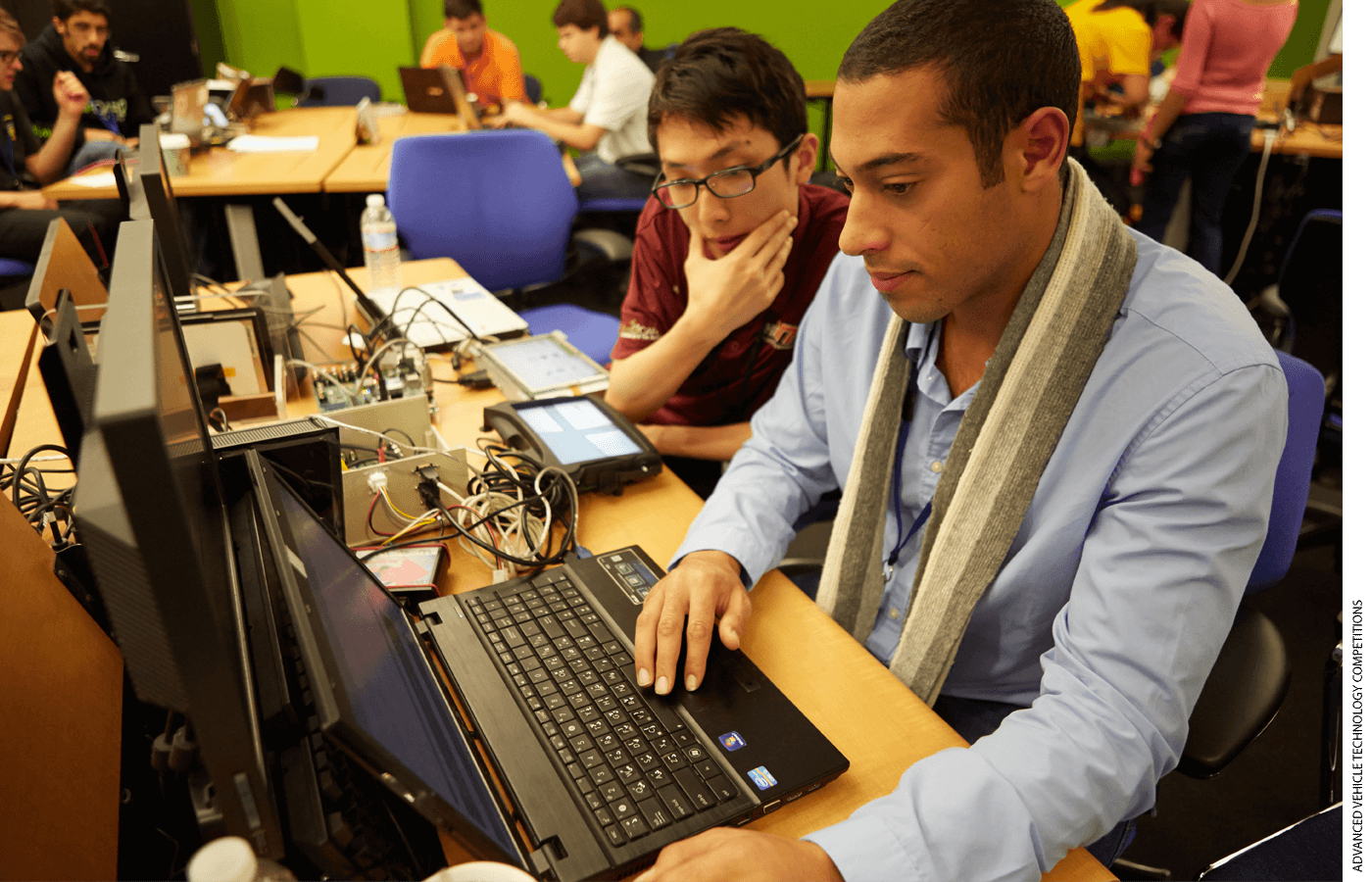Do Generation Z and Millennials expect to be worse or better off than their parents? Do they think they will succeed in life and experience the American Dream? What do they believe will help them succeed?
Contrary to much of today’s conventional wisdom, young people—especially youth of color—are optimistic about their futures and believe they will succeed in life. They also believe in and think they will achieve the American Dream, defined on their terms. And they say education plays a key role in helping them unlock opportunity, create a better life, and reach that dream.
More than 4,000 U.S. respondents ages 13 to 23 (Gen Z) and 24 to 39 (Millennials) were surveyed in late June 2020 by Echelon Insights on their attitudes and thoughts concerning the American Dream, along with issues like education and their community.
Perhaps the most striking attitude of these young people is their faith in the work ethic. More than eight in ten—81 percent—think that “If I work hard, I…will…succeed in life”. Hard work not only brings success, seven in ten (71 percent) believe it allows them to move up the economic ladder.
This belief is affected by household income. Those with higher incomes are more likely to believe this than those with lower incomes. Still, more than six in ten (62 percent) of those making less than $30,000 believe they will move up the economic ladder.
Nearly eight in ten (79 percent) believe their individual lives will be better (49 percent) or the same (30 percent) as their parents—though Gen Z are more optimistic than Millennials (85 percent versus 74 percent).
Of those who think they will have a better life (49 percent), nearly half (49 percent) credit this belief to having improved and different opportunities than their parents, especially educational opportunities.
Of those who think their life will be worse than their parents (13 percent), nearly half (44 percent) give economic reasons as the key impediment.
Gen Z and Millennials of color are more likely than whites (57 percent versus 42 percent) to think they will have a better life than their parents.
On the other hand, nearly two in three (60 percent) Black Gen Z and Millennials see racial inequality as either “extremely” or “very” big problems that will keep them from pursing opportunity. Four in ten (40 percent) Hispanics and Asians and around one in four (26 percent) whites answer in a similar fashion.
What of the American Dream?
Overall, two in three (67 percent) believe that individually they have the opportunity to achieve it. A similar percentage of Gen Z and Millennials across racial and ethnic groups believe they are as likely as whites to realize it.
These young people were asked in an open-ended question to define the American Dream. Their answers were clustered under 18 categories. The top five were: freedom, especially to choose whatever one wants to be (20 percent); financial well-being (19 percent); family (15 percent); good job or career (14 percent); and housing (14 percent).
Focus group interviews with nearly 150 individuals provide more details on what the American Dream means to these young people. In responses similar to the top category of the open-ended question, they describe it as having the freedom and opportunity to build their life on their own terms.
Many used the word “opportunity” to define what it means. For them, opportunity is about creating many pathways to success. The opportunity structure they envision is pluralistic, running counter to the view that there is a “one size fits all” definition of success.
When asked about what might help them have the opportunity to live a better life, respondents were given 13 possible answers. The top three “extremely” or “very important” responses were family (83 percent), environment (74 percent), and public schools (72 percent).
So the school as a key local, community institution plays an essential role in making the American Dream a reality.
Nearly seven in ten (68 percent) believe education beyond high school is needed for getting ahead and having good opportunities in life. But over four in ten (43 percent) say higher education is too expensive or hard to access.
Less than half (46 percent) believe their K-12 education prepared them “extremely” or “very well” for good opportunities in life. In particular, young adults who did not pursue higher education are the least upbeat about their own high school education.
Almost three in four (77 percent) say they would now include career or job skills and basic financial skills as major priorities that schools should teach by high school graduation.
What makes for a good community in which to live and opens doors to opportunity?
When asked to choose the two or three items from a list of nine, they respond: affordable cost of living (56 percent); good job opportunities (49 percent); and good environment, as in clean air and water (39 percent). Good schools (32 percent) are fifth on the list.
How does Covid-19 affect their views?
Two in three (62 percent) believe that it’s made success in life a “lot” or “little” harder. Nearly four in ten (39 percent) think that after having an effect for a few years, “we will get past it.” Around a quarter (27 percent) believe it will cause permanent change.
What are we to make of this?
The American Dream is portrayed in two ways in this survey. One narrative is relative, defined in terms of others—being better or worse financially or in other ways than one’s parents, moving past some individuals, up the success ladder. The other is absolute, defined in terms of one’s self—choosing whatever one wants to do, a good job opportunity, my family.
Both narratives are present in the survey answers and reflections of these young people. But the open-ended questions and focus group discussions favor the absolute view.
The new American Dream Gen Z and Millennials are pursuing emphasizes freedom and the opportunity to build one’s own life on one’s own terms. Opportunity is not a “one size fits all” description of success. Rather, opportunity pluralism abounds—there are many pathways to success. Opportunity is about building the life one wants in a local community that’s affordable, has good jobs, and a clean environment. And education—while in need of change—unlocks the door to opportunity and the American Dream.
Bruno V. Manno is senior advisor for K-12 education reform with the Walton Family Foundation. The survey was conducted by Echelon Insights and commissioned by the Walton Family Foundation. Echelon retained control over survey development, administration, and reporting.





